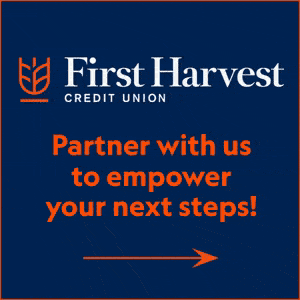
New Study Shows Cash Remains a Mainstay for Both Consumers and Businesses, Even in the Age of Technology
According to data from Cash Connect, a division of WSFS Bank, 81% of financial decision makers agree that cash payments have remained at least somewhat steady at their businesses over the past five years
WILMINGTON, Del.— Despite the availability of technology-driven forms of payment such as credit cards, debit cards, and mobile wallets, cash remains a mainstay for both consumers making payments (40% prefer to use cash) and businesses accepting them (78% accept cash as a form of payment), according to a new study published by Cash Connect, a division of WSFS Bank that provides cash logistics services.
The nationwide study asked 1,500 people 18 and older about their spending habits as it relates to forms of payment, and 500 business financial decision makers about the forms of payment their businesses prefer and experience daily.
“There’s a perception that cash is disappearing, especially with the rise of new technologies like mobile wallets and contactless payments,” said John Clatworthy, SVP, Director of Client Services of Cash Connect. “However, we are seeing that consumers still believe cash plays an important role in how they manage their money and make payments, specifically in younger generations such as Gen-Z, who typically are more technologically driven but also see the value in having cash on hand. This trend will be one to watch, especially for businesses that accept cash.”
Businesses Value Cash, But Require Safety
Thirty-nine percent of business respondents said they have a cash-only policy for purchases less than $20 and 43% of their businesses’ purchases are less than $20.
With many small purchases being paid for with cash, the majority (71%) of financial decision makers agreed that there is nothing worse than when someone pays for a small purchase with a big bill, like a $50 or $100.
Once the cash is within the business’ system, it is up to the financial decision maker to safely deposit it. Seventy-five percent said they currently use the “cash to bank” method, meaning they or someone trusted on their team transports the cash to the bank to be deposited.
However, 77% of decision makers have considered implementing a smart safe or cash recycler for their business within the past year, with many citing, “safety and security,” “efficiency” and “ease” as top reasons for considering implementing these technologies and services.
“Despite reports that claim cash is obsolete, it is clear that cash is a valuable asset to many consumers and business leaders alike,” said Clatworthy. “The key is to make cash more easily accessible to consumers and a safer option for financial decision makers who often oversee reconciling at the end of each day. Financial experts such as those at Cash Connect can help guide businesses to be more efficient and safe through use of technologies and services like Smart Safes, so they can continue to offer a variety of payment methods to meet customer demand and grow at scale.”
Cash Keeps Consumers on Budget
Fifty-one percent of Americans agreed that using cash helps them budget their money. Leading the pack is the Gen-Z demographic, or those ages 18-24, 58% of whom use cash to budget their money, and 52% of whom cite cash as their preferred payment method.
However, many respondents said they cap their cash purchases at $31, as 54% only carry $1-$50 in cash on them. When asked what they use cash for, the most popular uses were:
- Leaving tips (48%)
- Purchasing fast food (44%)
- Purchasing candy and snacks (37%)
- Purchasing coffee (32%)
- Paying for gas (27%)
Seventy-six percent of respondents said there is nothing worse than finding out you need cash and realizing you don’t have any. Sixty-six percent of those who carry cash withdraw it from an ATM anywhere from one to four times per month, with 60% withdrawing outside their bank building or within their bank building, and 53% withdrawing cash in $20 denominations.
An infographic on the study is available here.
Survey Methodology
This study was conducted by OnePoll on behalf of Cash Connect, a division of WSFS Bank. The sample includes 1,500 general population respondents nationwide between the ages of 18 and 57+, and 500 business financial decision makers. The survey was conducted in June 2021.
About Cash Connect
Cash Connect is a leading national provider of ATM and Smart Safe Cash Logistics. Since 1998, it's provided cash management services to financial institutions and independent ATM deployers, and its commitment to innovation helps its clients stay at the forefront of change. A division of WSFS Bank, Cash Connect supports over 34,000 devices in all 50 states. Visit cashconnect.com for more information
About WSFS Financial Corporation
WSFS Financial Corporation is a multi-billion-dollar financial services company. Its primary subsidiary, WSFS Bank, is the oldest and largest locally managed bank and trust company headquartered in Delaware and the Greater Philadelphia region. As of March 31, 2021, WSFS Financial Corporation had $14.7 billion in assets on its balance sheet and $24.7 billion in assets under management and administration. WSFS operates from 111 offices, 88 of which are banking offices, located in Pennsylvania (51), Delaware (42), New Jersey (16), Virginia (1) and Nevada (1) and provides comprehensive financial services including commercial banking, retail banking, cash management and trust and wealth management. Other subsidiaries or divisions include Arrow Land Transfer, Cash Connect®, Cypress Capital Management, LLC, Christiana Trust Company of Delaware®, NewLane Finance®, Powdermill® Financial Solutions, West Capital Management®, WSFS Institutional Services®, WSFS Mortgage®, and WSFS Wealth® Investments. Serving the Greater Delaware Valley since 1832, WSFS Bank is one of the ten oldest banks in the United States continuously operating under the same name. For more information, please visit www.wsfsbank.com.






